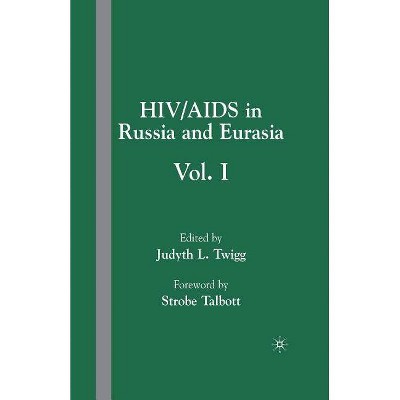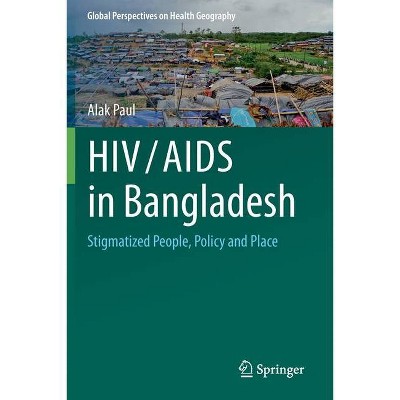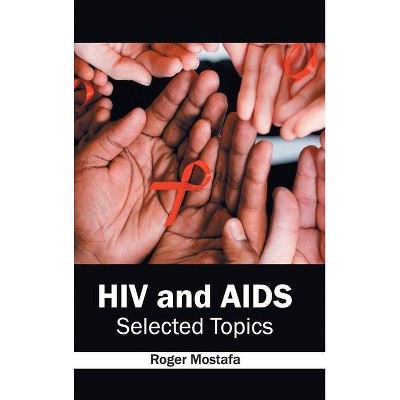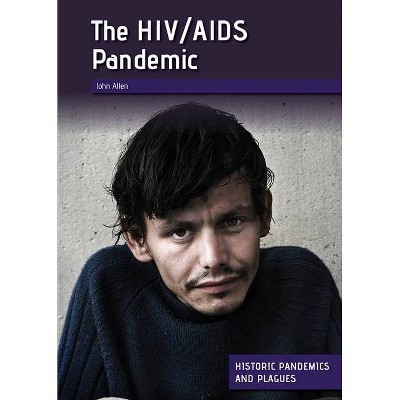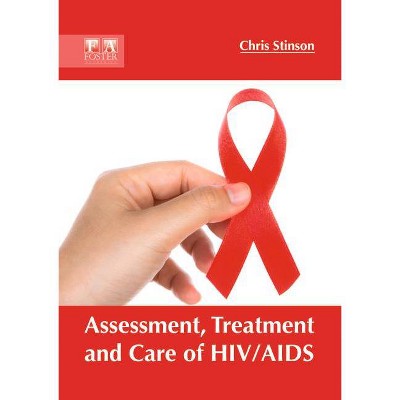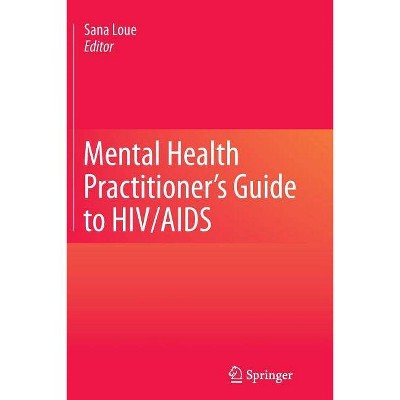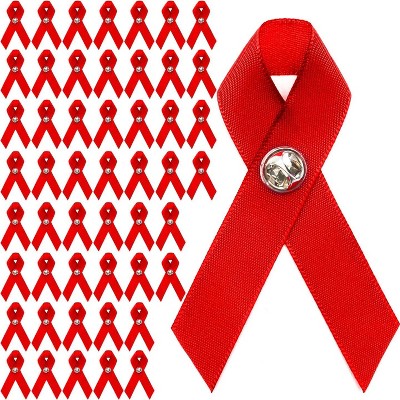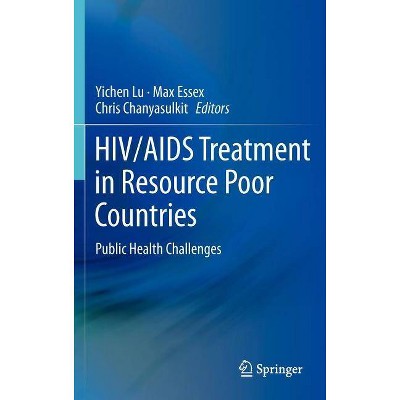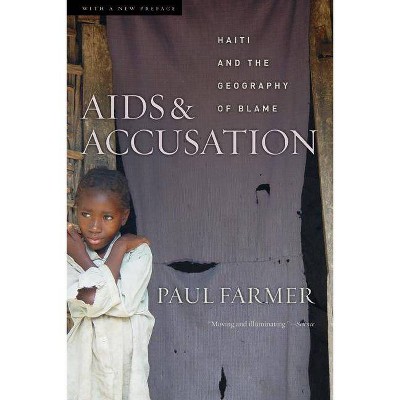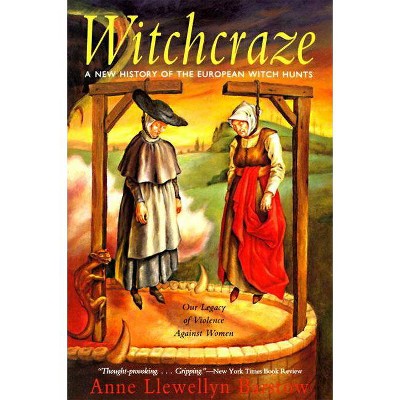HIV and AIDS in 2030 - by David R Barstow (Paperback)
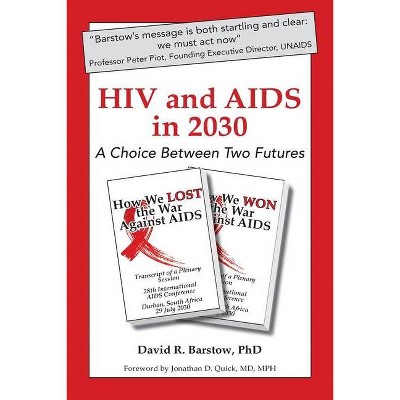
Similar Products
Products of same category from the store
AllProduct info
<p/><br></br><p><b> Book Synopsis </b></p></br></br><p><strong>Two Futures--Millions of Lives</strong></p><p>2030 will be a year of reckoning for the AIDS epidemic, marking fifty years of one of the worst epidemics in the history of the world. The 28th International AIDS Conference will be held in July of that year in Durban, South Africa. The conference will include a panel of leaders looking back on the fifty-year history of HIV and AIDS. But what will the panelists say?</p><p>If HIV and AIDS have made a strong resurgence in the 2020s, the panel will be called How We Lost the War Against AIDS, and the panelists will focus on the mistakes that led to an overwhelming human catastrophe.</p><p>But in a different future, a future in which HIV and AIDS are no longer threats to public health, the panel will be called How We Won the War Against AIDS, and the panelists will celebrate the wise decisions that led to a humanitarian triumph.</p><p>Which future will we see? Now is the time to choose.</p><p><em>David Barstow deftly combines the meticulous attention to order and detail that you would expect from a scientist with the persistence and passion for action you would expect from an activist.</em></p><p>--From the foreword by Dr. Jonathan Quick, MD, MPH, author of <em>The End of Epidemics: The Looming Threat to Humanity and How to Stop It</em></p><p><em>David Barstow's book lays out two possible storylines based on the two possible choices the world might make: a scenario of terrible human suffering or a victorious ending where humanity "wins" and the threat is averted. We can write this next chapter, but what will we write? The choice is ours to make.</em></p><p>--Richard Stearns, President Emeritus, World Vision US</p><p><em>Barstow paints a picture of what the future will look like if we do not urgently recognize that we are far from ending AIDS. He shows that Two Futures are possible. The HIV response has been one of the most successful in the history of public health. If we act now, we can get to the end. If we do not, history will not treat current policy makers well.</em><br /> --Mark Dybul, Professor and Co-Director, Center for Global Health and Quality, Georgetown University Medical Center</p><p/><br></br><p><b> Review Quotes </b></p></br></br><br><p>David Barstow's book shows the critical juncture the global community faces in turning the tide on the epidemic. Barstow's message is both startling and clear: we must act now to reboot and recharge our eff orts to deliver sustainable results for people and communities across the world.</p><p><strong>--Professor Peter Piot<br /> Director, London School of Hygiene & Tropical Medicine</strong></p><p> </p><p>In 2001, when World Vision was ramping up its AIDS prevention initiatives, I called HIV a "Doomsday Virus"; the kind of apocalyptic pathogen that is the stuff of disaster movies. It stalked its prey silently, passed from husband to wife and mother to child, showed no symptoms for months or even years so that it could continue to be transmitted unnoticed, and was effectively 100% fatal. To make it worse, because it was spread through sexual contact, it became taboo to even discuss it openly. Only a full-court press by the nations of the world could stop it. And, remarkably, the world responded and began to win the batt le to raise awareness, slow its spread and care for its victims. But HIV, like a wolf at our door, doesn't give up. David Barstow's book lays out two possible storylines based on the two possible choices the world might make. One is the "Doomsday" scenario of terrible human suffering, and the other is the victorious ending where humanity "wins" and the threat is averted. We can write this next chapter, but what will we write? The choice is ours to make.</p><p><strong>--Richard Stearns<br /> President Emeritus, World Vision US</strong></p><p>Barstow paints a picture of what the future will look like if we do not urgently recognize that we are far from ending AIDS. He shows that Two Futures are possible. The HIV response has been one of the most successful in the history of public health. If we act now, we can get to the end. If we do not, history will not treat current policy makers well.</p><p><strong>--The Honorable Mark Dybul<br /> Professor and Co-Director, Center for Global Health and Quality, <br /> Georgetown University Medical Center</strong></p><br>
Price History
Price Archive shows prices from various stores, lets you see history and find the cheapest. There is no actual sale on the website. For all support, inquiry and suggestion messagescommunication@pricearchive.us
